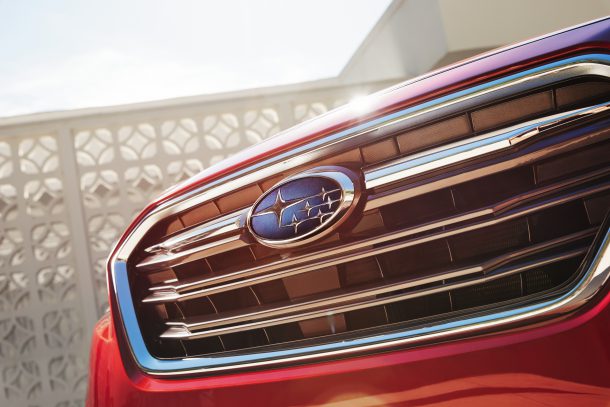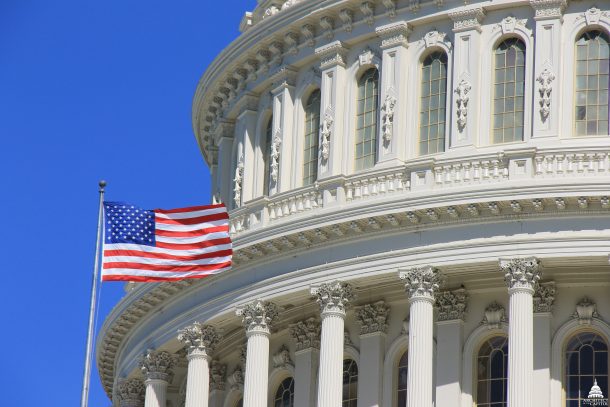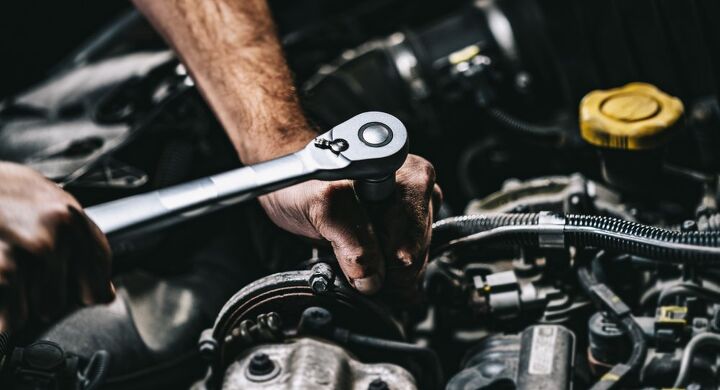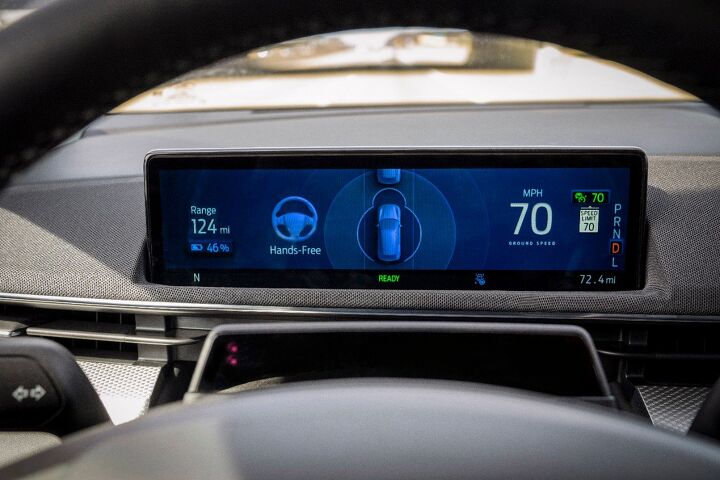#AAI
Study Suggests Public Supports Right-to-Repair Movement
Most people who know their way around a wrench will tell you that vehicles haven’t gotten any easier to work on over the years. While modern automobiles tend to be longer lived than earlier models and on-board diagnostics have made issues somewhat easier to diagnose, decades of added complexity have made resolving those problems substantially more troublesome and costly. Modern engine layouts are focused on packaging, not on providing mechanics with easy access, and the sheer number of electrical components in today’s cars means that many parts that could have been repaired before now have to be replaced.
Right-to-Repair Victory Forces Subaru to Tweak Things in Massachusetts
Subaru of America will be canceling Starlink telematics subscriptions on all new 2022 vehicles sold in Massachusetts thanks to the state having an amended right-to-repair law that’s wildly unpopular with global automakers. If you’ve been following our coverage, Massachusetts has become ground zero for consumer advocacy groups, independent repair shops, and car buyers that have grown concerned with the industry’s increased interest in data hoarding.
The argument is that the automakers are now building vehicles that violate customer privacy — by wirelessly transmitting information back to manufacturer data farms — while also setting them up to make independent repairs nearly impossible. This resulted in an extended legal battle where the Alliance for Automotive Innovation (AAI) went to bat to ensure the industry retained this lucrative venture. But it was stymied by the grassroots campaign launched against it. Massachusetts’ updated law currently requires all vehicles sold within the state (from the 2022 model year onward) using telematics systems to be equipped with a standardized, open-access data platform that would allow customers and unaffiliated mechanics to gain access.
Opinion: Elon Musk's Criticisms of the EV Incentive Bill Are Valid
Tesla CEO Elon Musk isn’t fond of the new electric-vehicle incentives being proposed by the United States Congress and recently stated as much over social media this week. He even went so far as to allege that the bill was lobbyists working on behalf of legacy automakers and the United Auto Workers, as it monetarily benefits domestic manufacturers with strong union ties above all others.
Truth be told, it’s kind of hard to respond to those claims with anything other than an affirmative nod. Due to his seemingly intentional manipulation of cryptocurrency and willingness to overpromise Tesla investors, I’m not the biggest fan of Musk. However, he’s getting support from other manufacturers and it’s pretty hard for your author to see any legislative scenario other than the one he’s supporting — especially since this is frequently how business is done on Capitol Hill.
Auto Alliance Outlines EV Charging Infrastructure Plan, Asks for Help
This week, the Alliance for Automotive Innovation (the largest automotive lobby in existence) released a set of principles relating to the EV charging infrastructure that it believes will be absolutely necessary to spur consumer adoption of electric and alternative energy vehicles in the United States.
“For the auto industry’s transition to electrification to be successful, customers will need access to affordable and convenient charging and hydrogen fueling, easy-to-understand utility rate structures that reward off-peak charging, and improved charging times,” John Bozzella, CEO of the alliance, said on Wednesday. “And we must also work together to grow EV sales without leaving low-income, rural or disadvantaged communities behind.”
That’s corporate-speak for “we need to stop catering to wealthy buyers and the government needs to pay for as much of this as possible.”
Right-to-Repair Movement Gets Federal Attention
While the right-to-repair movement is fighting a national battle, the brunt of the action has been taking place on America’s coasts. Consumer activists are taking on multinational corporations that don’t want you to modify your mobile devices, affix aftermarket components to your vehicle, or have complete access to the data that’s amassed by the staggering number of products that are needlessly networked to the internet. After years of petitioning the government, often while arguing with high-paid lobbyists, the group achieved a major victory in Massachusetts in 2020. Voters decided that automakers should not be allowed to withhold information from the vehicle’s owner or use it as a way to prohibit them from taking their car into independent repair shops (rather than manufacturer-certified service centers) or tinkering with it themselves.
Now the federal government is getting involved. Joe Biden has signed an executive order that effectively forces the Federal Trade Commission (FTC) to take regulatory action that would settle the matter. But we don’t really know if that’s going to lead to a market where customers are free to treat their property (and private data) as they wish, one where the manufacturer holds all the cards, or simply result in a regulatory minefield displeasing all parties.
Auto Lobby Now Recommends Driver Monitoring Cameras
On Tuesday, the largest automotive lobbying group released a handful of safety guidelines related to driver monitoring for vehicles equipped with driver-assistance features. It’s pageantry designed to convince you and the rest of the world to embrace technologies that have already led to unsettling privacy violations. The Alliance for Automotive Innovation making recommendations for the industry is farcical because the AAI already represents just about every major player on the field, suppliers included. The only real outsider is Tesla, which the organization decided would make an excellent scapegoat for the broader tech agenda.
But there’s still merit to the discussion, especially if the only proposed solution is to let the industry watch us inside our cars 24/7.
Auto Alliance Pitches Preferred U.S. Strategy: Government Money
The Alliance for Automotive Innovation (AAI) is proposing a national strategy for the United States it claims will help keep the country competitive. However, the AAI represents automakers, parts suppliers, and technology firms around the globe — making this more of a plea to U.S. policymakers and the industry to remain laser-focused on electrification, connectivity, and vehicular automation. It’s pitching its preferred global strategy, not some custom strategy for helping the U.S. achieve dominance because it’s telling the European Union and Asia the exact same story.
Elsewhere, the eight-part plan is being touted as an invaluable tool to help guide America back toward automotive relevance. But here, we remain skeptical.
Automotive Alliance Manages to Delay Revised Massachusetts Right to Repair Law
The Alliance for Automotive Innovation (AAI) has managed to stall enforcement of a ballot measure recently passed in Massachusetts that expands access to data related to vehicle maintenance and repair. Last week, the relatively new lobbying/trade group asked a U.S. district court for a temporary order that would bar implementation of the state’s new right-to-repair rules aimed at giving vehicle owners more direct control of their private data and independent repair shops a fighting chance of staying in business. But the state’s attorney general has already decided that the rules are invalid until after federal cases have been decided.
The decision represents another victory for giant, multinational corporations at the expense of disgusting citizens interested in controlling their personal information and small business owners who have had it easy for far too long.
Automakers Continue Battling Right to Repair Laws in Massachusetts
Despite Massachusetts voters approving a ballot initiative giving customers and independent repair shops more access to the massive amount of data being tabulated by modern cars by a sizable margin, automakers haven’t given up their unpleasantly consistent opposition to the right-to-repair movement. Backed by consumer advocates, unaffiliated repair shops, the aftermarket community, and those interested in D.I.Y. projects, the movement has made meaningful headway in MA under the updated laws. Vehicles that collect and transmit information back to the automaker manufactured for 2022 (or later) model year are now required to be paired with a standardized open-access data platform accessible by owners and anyone else they feel should have access.
But the automotive industry continues to claim these mandates would be impossible to comply with on such a short timeline and has launched a federal lawsuit that the revised rules create a massive security risk in terms of customer privacy and vehicle safety. We’re inclined to believe this is an easy way for legacy automakers to buy time so they can ultimately find ways of not adhering to the updated laws so they can continue benefiting from being the sole purveyor of the data. But we’re willing to entertain their case before making any final rulings — not that it will have any impact on the official case.
Massachusetts Passes Right-To-Repair Protections
Independent repair shops and aftermarket parts retailers have been pitted against major automakers and their dealer networks in Massachusetts for years. The state has served as the primary battleground for right-to-repair legislation that would permit/prohibit customers and independent entities from working on or modifying vehicles. However, a major victory came on Tuesday after voters overwhelmingly approved a ballot measure updating existing right-to-repair laws to give vehicle owners and small shops better access to vehicle data typically reserved for industry giants.
The resulting decision gives consumers substantially more control over what’s done with the data being harvested by the industry (often without their knowledge) and frees up their options on who to go to when their vehicle needs fixing.
Consumer Advocacy Group Demands Driving Data Be Controlled by Drivers
The Global Alliance for Vehicle Data Access (GAVDA) has issued a letter to automotive manufacturers around the world to request consumers be given direct access to the data generated by the vehicles they drive. While the group is comprised of organizations representing rental agencies, car sharing, independent vehicle repair shops that also want access to the information, it’s likewise backed by several consumer advocacy groups that worry customers and small businesses are being taken advantage of.
At the core of the letter is a refutation of claims made in a June 3rd memo the Alliance for Automotive Innovation (AAI) sent to Congress. That group is an assemblage of the world’s largest industry players with an aim to monetize driving data as quickly as possible. It just so happens that the duo are diametrically opposed to how the government should handle user information.
Auto Industry Squabbles With FCC, Promises to Use Allocated Bandwidth
Way back in 1999, the Federal Communications Commission (FCC) set aside frequencies so automobiles could communicate with surrounding infrastructure. Concepts included traffic monitoring, speed mitigation, data analysis, new opportunities for law enforcement, and improved self-driving capabilities. The industry never made much use of it, focusing instead on more independent autonomous vehicles that wouldn’t need help from the surrounding world, and which could simply communicate with each other (and manufacturer data centers) using existing wireless networks.
Annoyed that automakers had barely touched the bandwidth allocated to them, the FCC suggested handing it over to someone else in 2019. In response, the Alliance for Automotive Innovation (AAI) promised that if the commission voted to uphold the status quo on the 5.9-GHz band, the automotive sector would install 5 million vehicle-to-everything (V2X) radios on vehicles and roadside infrastructure over the next five years.
U.S. Auto Dealerships Ask Trump If They Can Stay Open Amid Outbreak
Like every other business in the United States, auto dealers are attempting to implement changes that would allow them to operate safely amid the coronavirus outbreak. Undoubtedly petrified by the massive hit the Chinese car market took after COVID-19 reared its ugly head in Wuhan, they also hope to remain open while other business stay closed.
On Tuesday, the National Automobile Dealers Association (NADA) and Alliance for Automotive Innovation (AAI) issued a formal letter requesting that President Trump consider dealerships and service centers as “essential operations when federal, state, and local officials impose certain requirements due to the coronavirus outbreak.” While we’ve already seen dealerships embrace new tactics to comply with public health initiatives, it’s assumed they’ll be shutting down just, like most automakers plan to. However, retailers worry their diminutive cash reserves (in relation to manufacturers) won’t see them through a prolonged shutdown while the broader industry wonders who will repair automobiles during the pandemic.

























Recent Comments